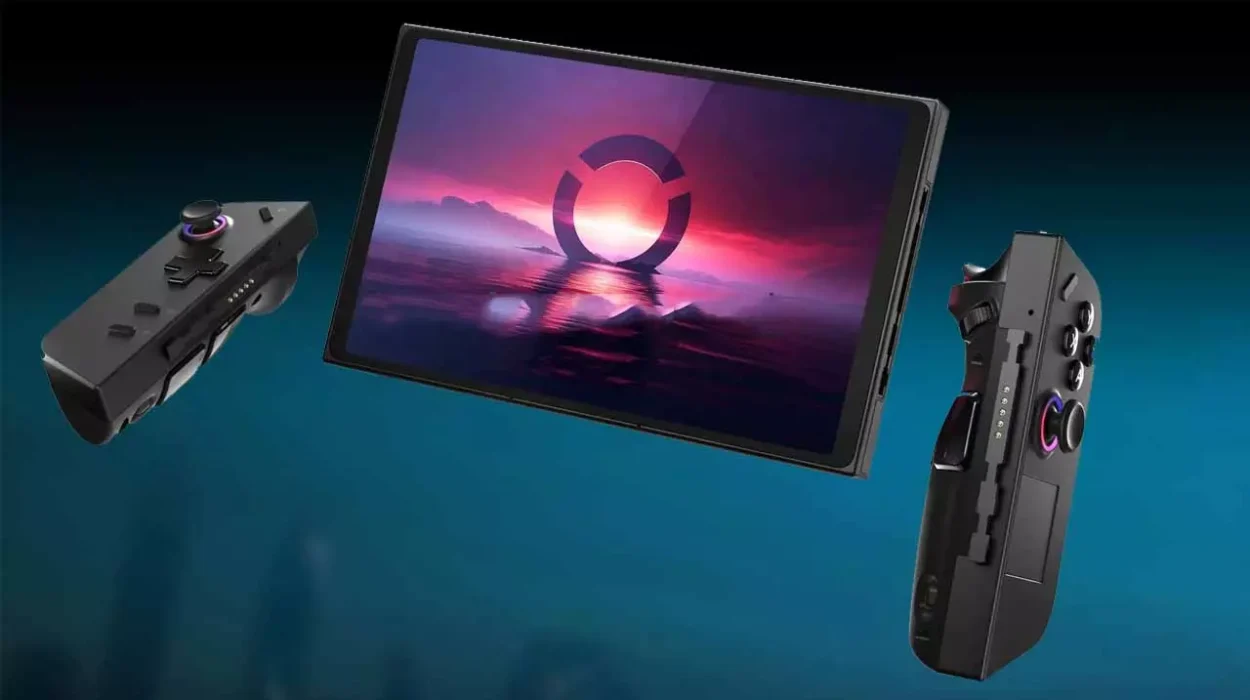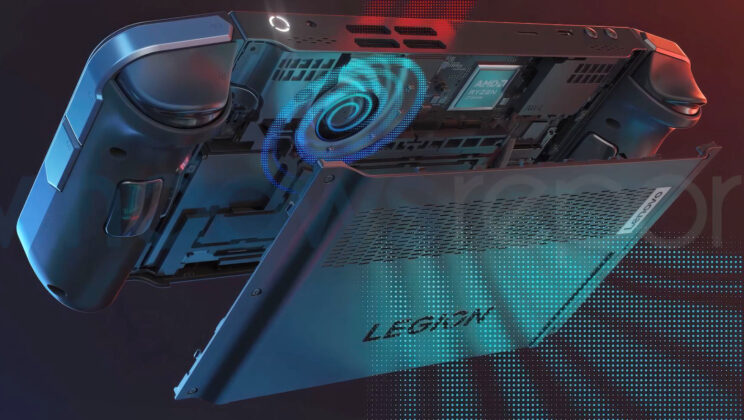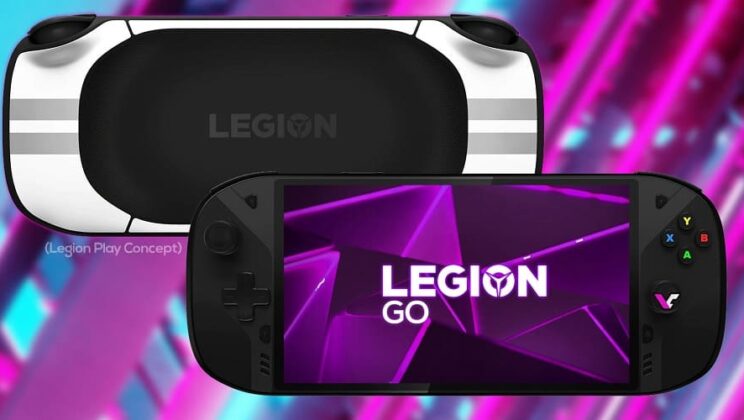Lenovo has entered the handheld gaming console arena with the highly anticipated release of its Legion Go. The console’s design was leaked, revealing its look and features, which bears a striking resemblance to Nintendo’s Switch. While no official release date has been announced, the Legion Go is expected to make a splash in the rapidly growing portable gaming market.
Lenovo’s Legion Go is a handheld gaming console that takes inspiration from its competitors. The design looks like a cross between the ASUS ROG Ally, Valve’s Steam Deck, and Nintendo’s Switch. At first glance, the console features a large screen, flanked by two removable Joy-Con-style controllers, similar to the Nintendo Switch. The controllers can be detached and used for two-player games or connected for handheld gaming.
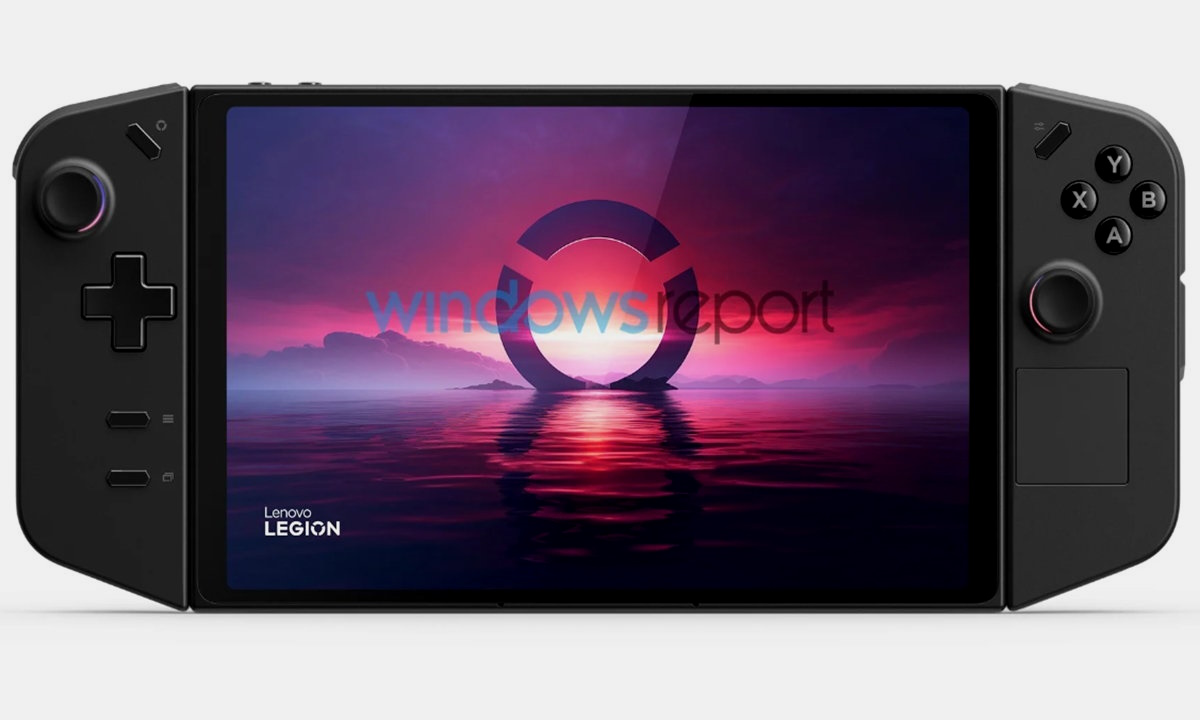
The Legion Go comes with a large 8-inch screen, a feature that is not present in some of its competitors. It also includes a rear support stand that allows it to be propped up on a table for hands-free gaming, just like the Nintendo Switch.
One unique feature that sets the Legion Go apart is its incorporation of a trackpad on the right side, reminiscent of the Steam Deck. This addition provides more options for gameplay and navigation.
The console will run on Windows 11, allowing it to play any game compatible with the operating system and a controller. This flexibility is expected to give the Legion Go an edge in the market.
As for hardware, the exact specifications are still unknown, though it is speculated that Lenovo will use the new AMD Phoenix processors, known for their performance and battery life balance. The device will also feature two USB-C ports, a microSD card slot for storage expansion, a headphone jack, and active cooling through air vents.
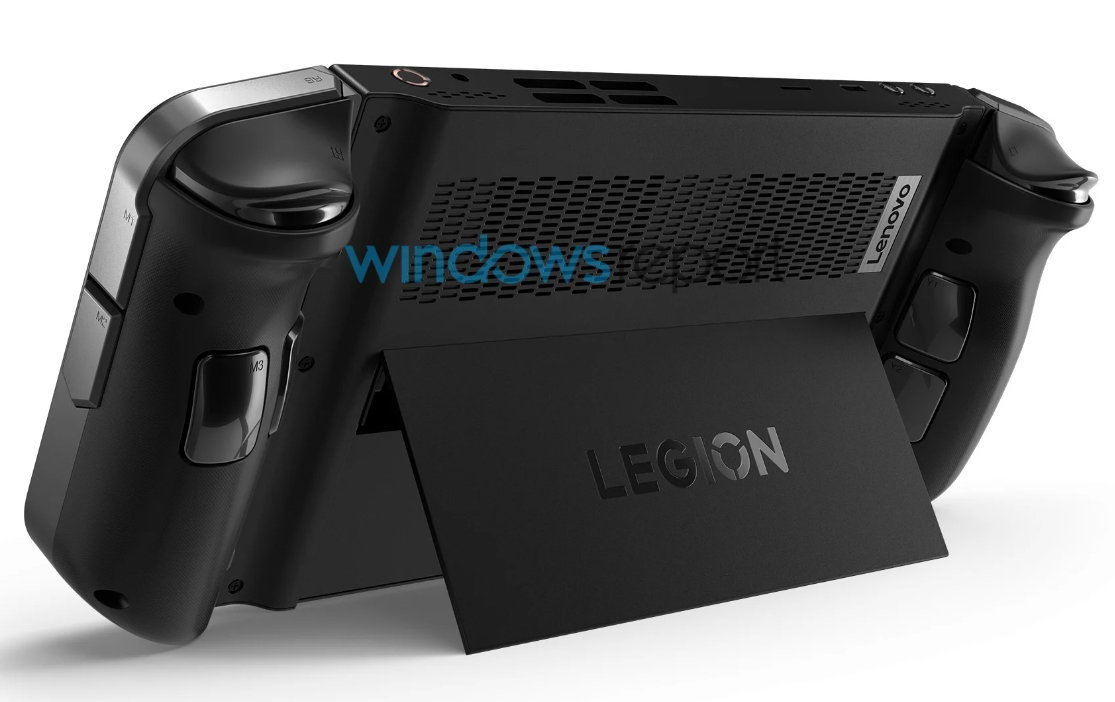
With the gaming console market rapidly growing, the Legion Go has a lot of competition. It will have to contend with Valve’s Steam Deck, ASUS’s ROG Ally, Ayaneo’s top-tier consoles, and the ever-popular Nintendo Switch. Lenovo will need to price the console competitively and offer superior features to stand out from the crowd.
It remains to be seen how the Legion Go will fare against its competitors. Lenovo will need to deliver on performance, build quality, and an engaging gaming experience to establish itself in the handheld console market.
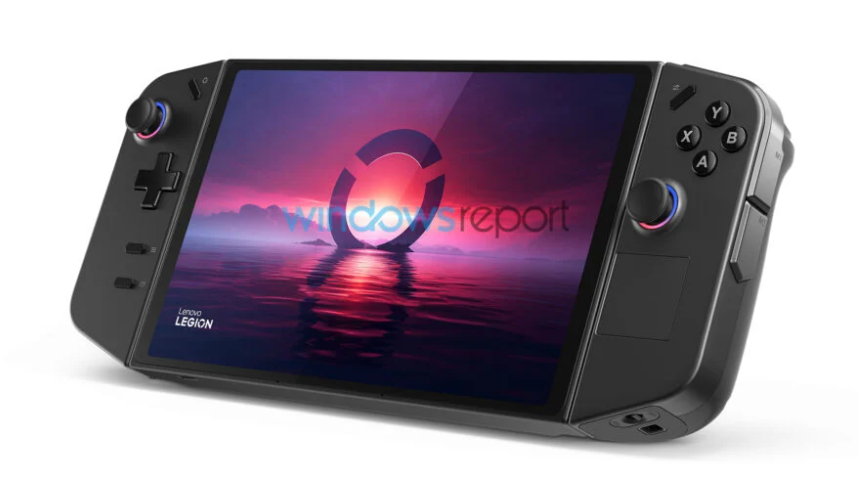
Conclusion
Lenovo’s foray into the portable gaming console market with its Legion Go has generated excitement among gamers. While no official release date has been announced, leaked images and details suggest that the Legion Go will feature an 8-inch touchscreen, removable controllers, and Windows 11 support. With a design reminiscent of the Nintendo Switch, the Legion Go aims to provide a flexible gaming experience for users on the go. However, it will face stiff competition from established and upcoming rivals in the portable gaming console market.
The Legion Go will likely include a powerful processor and a dedicated GPU to handle modern games with ease. The device might be powered by a Ryzen processor and feature an AMD RDNA 2 GPU, which would make it a powerhouse for gaming on the go.
Battery life is always a concern for portable gaming consoles, as powerful hardware can quickly drain the battery. The Legion Go will likely offer a substantial battery capacity to ensure several hours of gaming on a single charge. Lenovo could also implement power-saving modes to extend battery life during less demanding tasks.
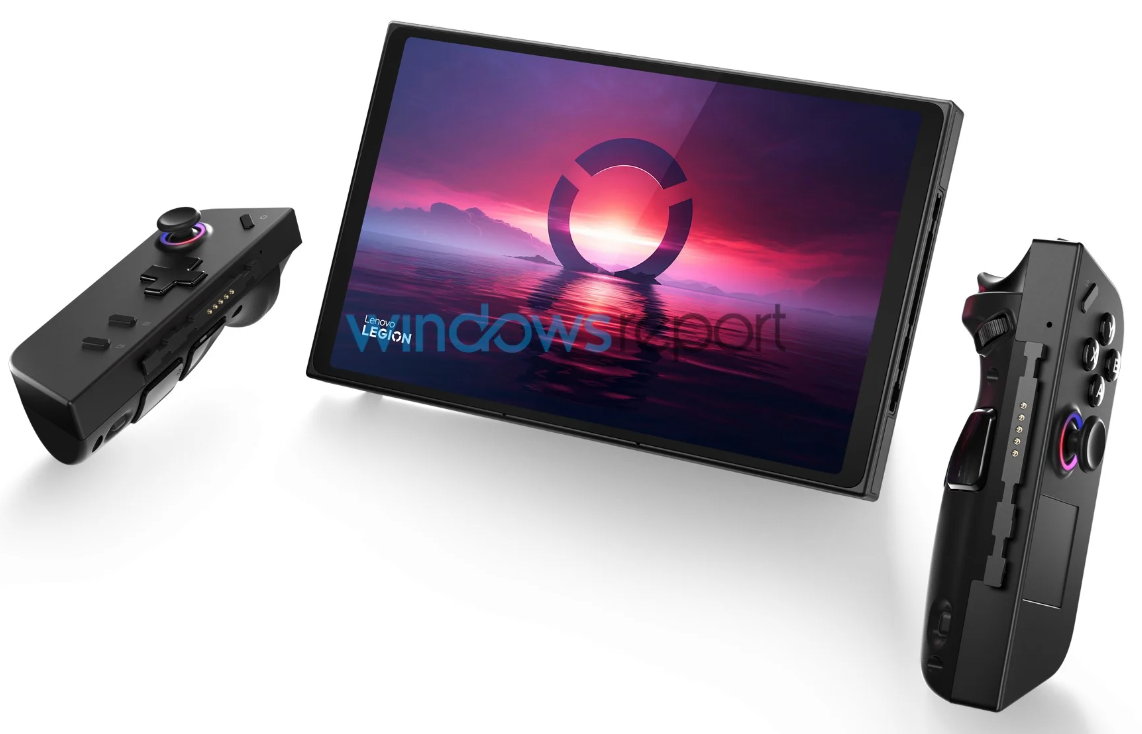
Connectivity will likely be another important aspect of the Legion Go. Expect support for Wi-Fi, Bluetooth, and possibly even 5G for online gaming and cloud gaming services. The console may also feature USB-C for charging and data transfer, as well as a 3.5mm headphone jack for audio.
As for the software, the Legion Go will run on Windows 11, which means that it will support a vast library of PC games. Additionally, it might come pre-installed with Lenovo’s proprietary gaming software for easy game management and system optimization.
The price of the Legion Go remains unknown, but given the features it offers, it’s safe to assume that it will be competitively priced to attract a large user base. The success of the device will largely depend on its pricing strategy and the gaming experience it provides.
In conclusion, the Lenovo Legion Go could be a serious contender in the portable gaming console market, with the potential to challenge the Nintendo Switch and Steam Deck. Its design, features, and software support make it an attractive option for gamers on the go. However, its success will ultimately depend on its performance, battery life, and pricing strategy. We look forward to hearing more a

